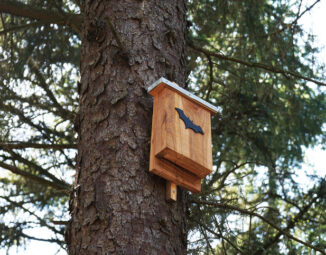Service Animals: Access to Your Business
We were all deeply moved by the images of President George H.W. Bush’s service dog, Sully, lying near the late president’s casket. Service animals provide an invaluable resource for hundreds of thousands of Americans living with physical disabilities and mental health issues.
However, many business owners can be understandably wary of allowing any animal into their premises. What if there are issues with customers or other employees? What if the business is located in a building that does not allow animals on the premises?
Despite these reasonable concerns, any business or non-profit that is open to the public must allow service animals to go most places where the public can go, even if it otherwise has a “no pets” policy and regardless of the size of the business.
However, the animal must truly be a “service animal.” As defined by the Americans with Disabilities Act (“ADA”), a Service Animal is any guide dog, signal dog, or other animal that has been individually trained to do work or to perform tasks for the benefit of an individual with a disability, including a physical, sensory, psychiatric, intellectual, or other mental disability. The dog may be any breed or size. Significantly, Service Animals are not required to be certified or go through a professional training program, and they are not required to wear a vest or other identification that indicates that they are service dogs. Accordingly, problems may arise because an animal that is wearing a vest is not necessarily a Service Animal, and an animal without a vest may actually be a Service Animal.
Animals whose sole function is to provide comfort or emotional support – i.e., “comfort animals” or “emotional support animals” — do NOT qualify as Service Animals under the ADA.
For example, if a dog has been trained to sense that an anxiety attack is about to happen, such as for a person with PTSD, and to take a specific action to help avoid the attack or lessen its impact, such as licking the person’s hand to alert him or her to an oncoming attack, the dog is a service animal. Likewise, a dog that is trained to advise a person to take their medication is also a Service Animal.
However, even if it is not obvious that the animal is a service animal, staff may only ask two specific questions:
- Is the animal a service animal required due to a disability?
- What work or task has the animal been trained to perform?
Staff are not allowed to request any documentation for the animal or the disability, to require that the animal demonstrate its task, or to inquire about the nature of the person’s disability.
Some people require more than one service animal. If so, both animals must be allowed, provided there is space. For example, both animals may be allowed in a guest’s bedroom at bed and breakfast, but, if the “breakfast” dining area of the B&B is small and crowded, only one animal may be permitted if it fits under the table. If a service animal is out of control and the handler does not take effective action to control it, staff may request that the animal be removed from the premises.
Service animals can be of particular concern to a business that provides food and/or lodging, such as hotels or bed and breakfasts. With respect to lodging, businesses are not allowed to assign designated rooms for guests with service animals, even “out of consideration” for other guests. A guest with a disability who uses a service animal must be provided the same opportunity to reserve any available room as any other guest. They may not be restricted to “pet-friendly” rooms. Further, hotels and similar businesses are not permitted to charge guests for cleaning the hair or dander shed by a service animal, but, if a guest’s service animal causes damage to a guest room, it is permitted to charge the same fee for damage as charged to other guests.
If a business offers food service – whether a restaurant, hotel, or B&B — service animals must be allowed to accompany their handlers to and through the food lines. If there is a designated dining area, the animal can be prohibited from sitting on chairs, sitting on the handler’s lap, or being fed at the table. Seating, food, and drink are for human customers only. If there is outdoor seating, the handler, and animal cannot be required to eat outside if the handler wants to sit inside. A service animal can also be prohibited from swimming in a pool or public swimming area but not from the deck or other areas where the public may go.
In summary, a guest using a service animal must have the animal under his or her control at all times and cannot leave the animal unattended, while the business must reasonably accommodate the guest’s needs.
If you have a business that may have dealings with service animals, Obermayer’s attorneys can craft a comprehensive policy for your employees to follow when interacting with your customers who rely on service animals.





